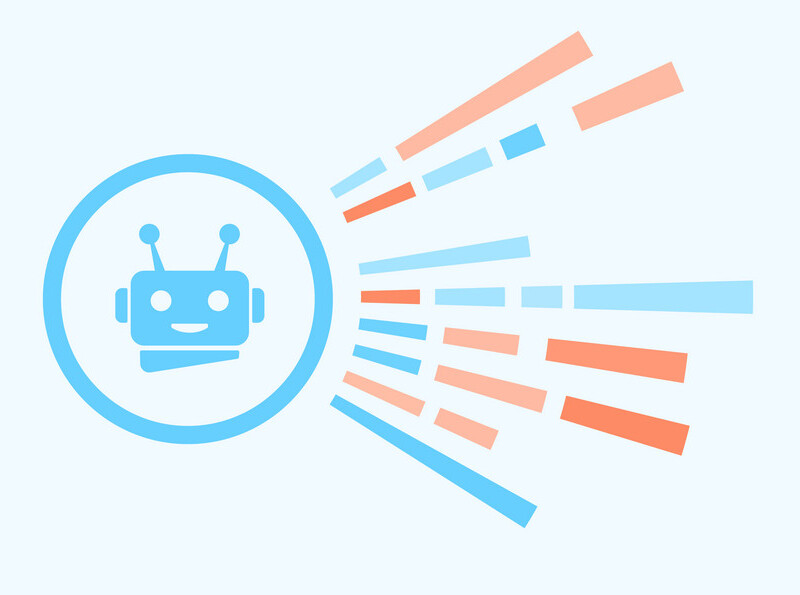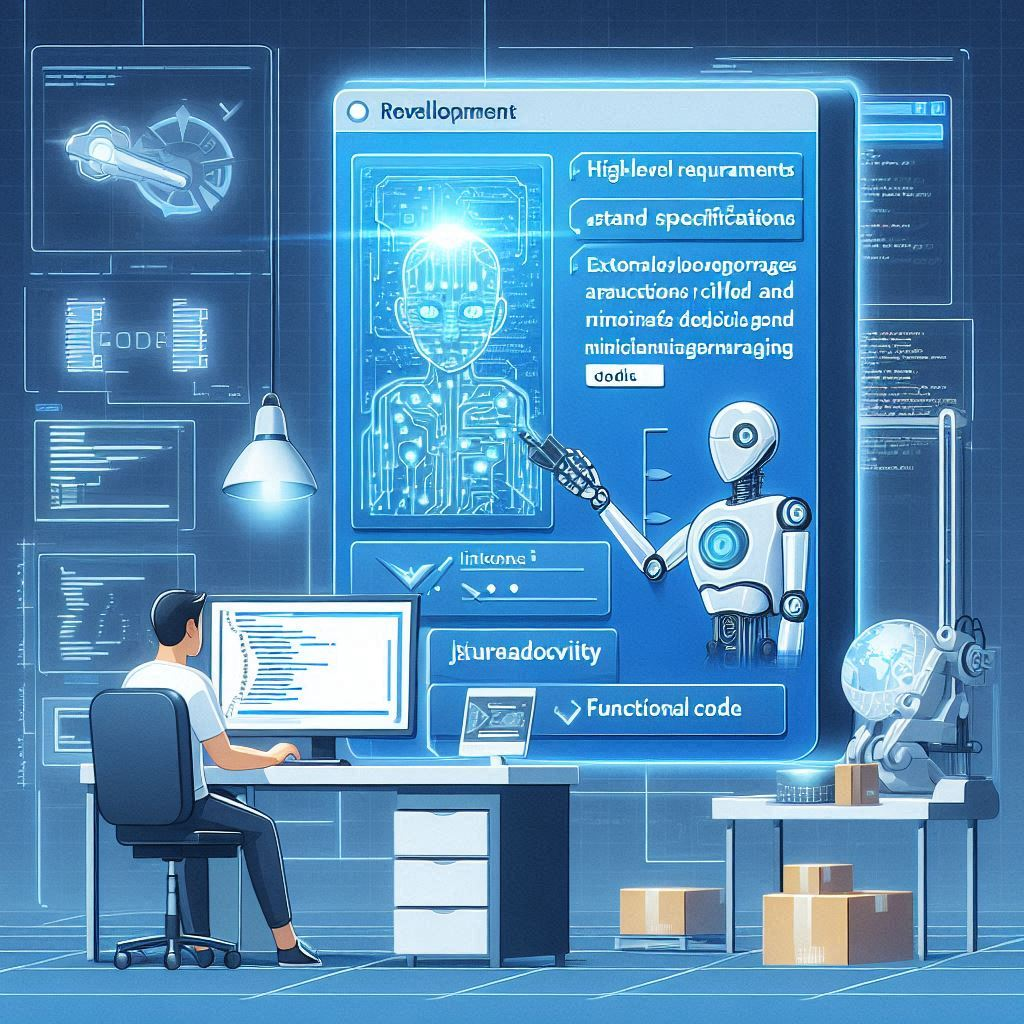Generative AI for code creation has the potential to revolutionize software development by boosting productivity, minimizing errors, and fostering unprecedented levels of innovation. At its core, generative AI for code creation leverages cutting-edge machine learning models to automatically generate code from natural language prompts or existing code snippets. Instead of manually writing every line of code, developers can harness these AI systems to automate various coding tasks – from intelligently completing code fragments to generating entire applications from high-level specifications.
Let’s take a closer look at some of the most important uses of code creation using generative AI.
Code Completion: A Productivity Boost for Developers
One of the most obvious uses of generative AI in software development is code completion. We’ve all been frustrated while gazing at an incomplete line of code, wondering how to proceed. With generative AI-powered code completion, developers can just start typing, and the AI model will analyse the context and offer the most logical code continuation.
Consider developing a function to retrieve data from an API. Instead of needing to remember the syntax for sending HTTP requests or dealing with unexpected problems, the AI model can finish the code snippet for you, maintaining consistency and adherence to best practices. This not only saves time, but it also decreases the possibility of introducing faults due to human error.
Code Generation from Natural Language: Transforming Ideas into Code
Beyond code completion, generative AI models may generate complete code snippets or even full apps based on natural language cues. This functionality is nothing short of revolutionary, since it enables developers to quickly prototype concepts or build boilerplate code without writing a single word of code by hand.
Assume you have a concept for a new mobile app that monitors your daily steps and makes personalised fitness suggestions. Instead of beginning from scratch, you could just express your concept in natural language to the AI model, and it would develop the code to make it a reality.
This natural language code creation not only speeds up the development process, but it also reduces the entrance barrier for people with little coding experience. Generative AI enables anybody to turn their ideas into workable software, enabling a more inclusive and inventive development ecosystem.
Test Case Generation: Ensuring Software Quality
Quality assurance is an important element of software development, and generative AI may aid here as well. Understanding a system’s anticipated behaviour allows these models to build detailed test cases automatically, ensuring that the programme works as intended.
Historically, establishing test cases has been a time-consuming and error-prone procedure that frequently necessitated extensive human work. With generative AI, developers may simply describe the desired functionality, and the model will produce a series of test cases to properly check the software’s behaviour.
This not only saves time and effort, but also enhances the software’s general quality and stability, lowering the danger of missing edge cases or introducing defects throughout the development process.
Automated Bug Fixing: Maintaining a Healthy Codebase
Despite intensive testing, errors are an unavoidable component of software development. However, generative AI can help detect and address these challenges more effectively than ever before.
By analysing the source and determining the core cause of errors, generative AI models may provide viable remedies or even implement repairs automatically. This may greatly minimise the time and effort necessary for manual debugging, freeing up engineers to focus on more productive activities.
Consider a scenario in which a critical problem is detected in a production system. Instead of spending hours or even days looking for the problem and testing various remedies, the generative AI model can swiftly analyse the code, identify the core cause, and provide a dependable remedy, reducing downtime and assuring a seamless user experience.
Model Integration: Democratizing Machine Learning
Beyond code creation and bug correction, generative AI has the potential to democratise the incorporation of machine learning models into software systems. By offering plain language interfaces, these models allow developers to include powerful AI capabilities without requiring considerable machine learning knowledge.
For example, a developer working on an e-commerce site may utilise a generative AI model to effortlessly incorporate a recommendation system that proposes goods based on user preferences and browsing history. Rather than manually implementing sophisticated machine learning methods, the developer could just submit a high-level description of the desired functionality, and the AI model would create the code required to integrate the recommendation system.
This democratisation of machine learning not only speeds up the development of intelligent, data-driven apps, but it also creates new opportunities for innovation by making advanced AI capabilities available to a wider group of developers.
Overcoming Challenges and Embracing the Future
While the promise for code creation through generative AI is apparent, it is critical to recognise and address some of the issues and concerns involved with this technology. One of the key concerns is that AI-generated code may create security flaws or spread biases found in training data. To reduce these dangers, developers must rigorously analyse and verify the code created by AI models, viewing it as a starting point rather than a finished product.
Furthermore, there are ethical concerns about the possible influence of code creation on the labour market and the role of human developers. As with any disruptive technology, it is critical to find a balance between exploiting the benefits of AI and ensuring that human skills and creativity are respected and integrated into the software development process.
Despite these limitations, the future of software development fueled by generative AI looks promising. As technology advances and becomes more robust, we can expect to see even more inventive applications emerge, easing the development process and expanding the boundaries of software engineering.
To summarise, code creation using generative AI is set to transform the way we build software, ushering in a new era of higher efficiency, fewer mistakes, and faster creativity. From code completion and natural language code creation to test case generation and automated bug correction, this technology has the potential to alter the whole software development lifecycle.
With the proper safeguards and a balanced approach, code generation using generative AI has the potential to empower developers, democratise access to advanced technologies, and propel the software industry into a future in which human ingenuity and artificial intelligence collaborate to create truly remarkable software experiences.
Contact us at open-innovator@quotients.com to schedule a consultation and explore the transformative potential of this innovative technology







